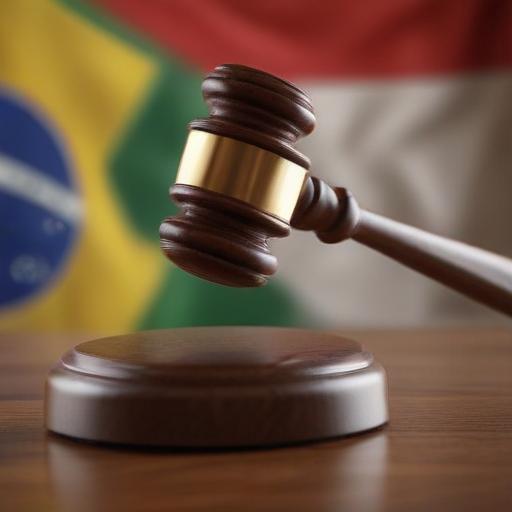Donald Trump has been sharply criticized for his interference in Brazil’s democratic institutions and governance, raising concerns about potential authoritarian shifts in the Americas. Over the past six months, Trump has instituted significant tariffs on Brazilian imports, which has been perceived as a strategic move against the country’s leadership amid ongoing legal challenges faced by former president Jair Bolsonaro.
Leading experts, including Harvard political scientist Steven Levitsky, have expressed alarm at what they describe as a reckless assault on Brazil’s democratic framework. Levitsky points out that the United States has a troubling history of intervention in Latin America, but he notes that using trade policy as a means to undermine a democratically elected government marks a disturbing trend. The Brazilian populace, weary of foreign meddling in their affairs, has reacted strongly against these actions, which they feel threaten the democratic gains achieved after decades of dictatorship.
Trump’s actions are seen by some as an attempt to prop up Bolsonaro, who is currently dealing with severe legal ramifications related to allegations of attempting a coup in 2022. As the Brazilian supreme court prepares to announce its verdict, Trump’s supporters view the situation as a critical moment for Bolsonaro’s potential political revival. However, this external pressure has sparked outrage among millions of Brazilians, igniting fears of a rise in anti-American sentiment.
Former finance minister Rubens Ricupero drew comparisons between modern economic coercion and historical military interventions, asserting that such tactics will likely fuel nationalist attitudes in Brazil. Marcelo Rubens Paiva, a pro-democracy advocate whose family was affected by past dictatorial regimes, condemned Trump’s interference as emblematic of a leader who seeks to impose his will globally, much like historical authoritarian figures.
While some suggest that Trump’s motivations could be linked to cultivating a pro-Trump right-wing coalition in Latin America, others believe the primary aim is to serve U.S. economic interests. Observers, including Levitsky, suggest that Trump’s approach mirrors that of tyrannical leaders who manipulate governance for personal gain, indicating a lack of coherent foreign policy strategy.
As Brazil grapples with this multifaceted challenge, there are indications that the pressure from Trump might inadvertently energize President Luiz Inácio Lula da Silva. Early responses suggest that the current administration is rallying against the perceived foreign encroachment on national sovereignty, potentially strengthening democracy in Brazil amidst the chaos. The situation continues to evolve, with many watching closely to see how it will influence Brazil’s political landscape moving forward.
